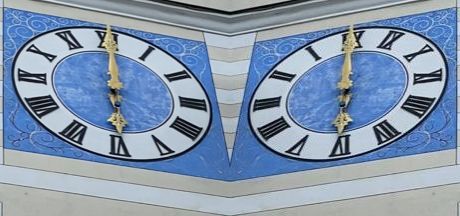We all use calendars to organize our time almost unconsciously. This is helpful to organize and synchronize our time together. Working time, family and individual time tend to use the same time structure to facilitate community. Work arrangements depend a lot on a common method to structure time. The work-life balance hinges a lot on synchronization of calendars and joint time slots. Towards the end of the annual vacation period in Europe the annualized change of calendars is still common practice despite most people going digital. Annual overviews allow to allocate and potentially synchronize calendars for major events or periods (next break, period devoted to learning, family planning etc.). A cleavage that differentiated Europe in the analogous times was that some countries like Germany use(d) chronological calendars running from 1st of January until 31st of December and counting calendar weeks (1-52). Many other countries have long ago moved on to “functionalist” calendars running based on the school year from 1st of September to 31st of August each year. Different planning horizons appear to be the obvious outcome. Whereas the former might focus on the planning of the end of the calendar year 2023, the latter functionalist calendars begin to structure the new year-long period 2023-24 including the next summer break towards the end of the next schooling year.
In France you start end of August 2023 to plan ahead until end of August 2024. This comprises the Olympic games in Paris 2024. Don’t worry, most tickets are sold out already and attributed through lotteries. When people in Germany start to buy calendars for 2024 and organize a printed calendar, this occurs traditionally around Christmas time and New Year’s celebrations.
Specific professions follow their own calendar time. Academic years or accounting years may well differ from the other annualised organisation of time through calendars. Of course, religions have established their own calendars just as migrating birds or French revolutionaries in the 18th century. Meteorological calendars or sensor-based structuring of annual sequences of seasons like in trees, plants or insects add to the impression of the existence of multiple clocks. 
A de-synchronisation of these multiple calendars increases the need to coordinate societies within or society and the economy, religion or ecology. I liked my printed calendars over the years. Now I shall print different versions for different countries and functions. I still wonder, if my life got easier or more complex. Probably, it has only become easier to organise complexity and diversity. Clock 6 video


One Reply to “Calendar Time”
Comments are closed.